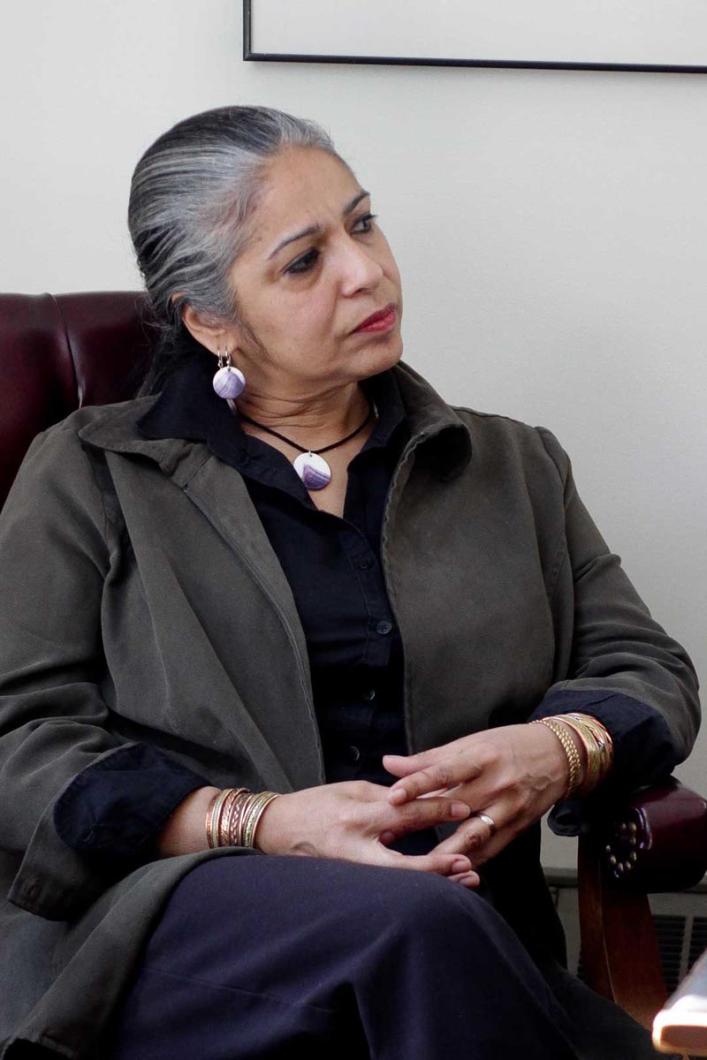The Wampanoag Tribe of Gay Head (Aquinnah) yesterday announced its intention to file a lawsuit against Gov. Deval Patrick, and possibly also the town of Aquinnah, to protect its right to build a casino in southeastern Massachusetts and on the Vineyard.
Scott Crowell, a Washington state attorney who represents the Vineyard Wampanoags, said yesterday the tribe will file a lawsuit on Sept. 3 in federal district court.
“The primary claim will be the failure to negotiate a compact with the tribe for existing trust lands on Martha’s Vineyard,” Mr. Crowell said by telephone yesterday. “We will most likely pursue additional claims . . . that include our ability to game on the mainland as well.”
The announcement came on the same day Governor Patrick signed a preliminary gaming compact with the Mashpee Wampanoags, who are working on plans for a $500 million casino and resort in Taunton. The Mashpees have been running ahead of the Aquinnah Wampanoags at every turn since the state legislature cleared the way last year for at least one casino license to be issued for a federally recognized Indian tribe in the state. The Mashpees won solid backing from voters in Taunton for their facility this spring, while the Aquinnah tribe lost badly in a nonbinding referendum votes in Freetown and Lakeville for a casino on land they want to buy spanning the two towns. And now Governor Patrick, who has refused to negotiate with the Vineyard tribe, has signed a draft compact with the Mashpees.
“Although the Aquinnah tribe congratulates its Mashpee cousins for reaching this threshold, it is unfortunate that the compact appears to wring unjust and burdensome concessions from the Mashpees that are highly unlikely to pass muster under the federal Indian Gaming Regulatory Act (IGRA),” said Cheryl Andrews-Maltais, chairman of the Vineyard tribe, in a statement yesterday.
The federal Indian gaming act is at the center of the Vineyard tribe’s dispute with the state over its rights. Governor Patrick believes the Vineyard Wampanoags waived their sovereignty in a 1983 land claims settlement they signed. But the tribe said IGRA trumps that agreement.
The issue is expected to be decided in court.
“Our interpretation of the law is we don’t need his permission [to pursue Class II or Class III gaming],” Mr. Crowell said yesterday, referring to Governor Patrick and his administration. “His interpretation of the law is we’re subject to the laws of the state of Massachusetts and cannot move forward in either . . .”
He added: “The town has issued a legal opinion suggesting the tribe cannot move forward with a Class II or Class III facility . . . if the town plans to stop the tribe then it will [probably] be included in the lawsuit as well.”
Mr. Crowell is a partner at a tribal advocacy firm based in Spokane, Wa.
The compact with the Mashpees still must be approved by the Mashpee tribal council, the state legislature and the U.S. Department of the Interior. There is a July 31 deadline for approval from the legislature. Among other things, the compact calls for allocating of 21.5 per cent of gross gaming revenues to the state over 15 years.
Mr. Crowell said the revenue allocation plan would violate federal law. “It is therefore difficult for me to see the basis of why the U.S. Department of Interior would approve such a compact,” he said.
In her statement, Mrs. Andrews-Maltais sharply criticized the governor for flouting the law. “Governor Patrick has clearly approached the expansion of gaming based on what he thinks he can get away with and not what the law compels him to do,” she wrote. “The Governor has now placed the Mashpees between a rock and a hard place as they now have to convince the Department of the Interior to approve a compact that contravenes federal law.”
Mrs. Andrews-Maltais also said the Aquinnah tribe’s gaming rights are protected under federal law.
“The express purpose of IGRA is to promote tribal self-sufficiency and strong tribal governments. Tribal gaming is intended to enable tribal governments to fund the programs they need to serve their membership and steward their lands. Hundreds of examples around the country demonstrate that strong tribal governments become great neighbors, employ thousands of non-Indians, contract with local vendors and generate millions in employment and sales tax revenue, all without directly taxing tribal gaming revenue,” she wrote.
She continued: “Perhaps it is just as well that Governor Patrick refused to negotiate with Aquinnah because Aquinnah would not, indeed could not, agree to many of the provisions in the compact.”
In April, the tribe announced plans to bring a Class II gambling facility to Aquinnah in the form of a high stakes bingo hall at its unfinished community center. The tribe said then it would sue in federal court to protect its rights, countering an opinion by Aquinnah town counsel Ronald H. Rappaport who said the tribe could not have a casino on land it owns in Aquinnah.
The community center is still unfinished, but in June the tribe began to take steps to finish the building and convert it to a Class II gaming facility. The tribe applied for an electrical permit with the town in early June but has not applied for a certificate of occupancy. There has been no activity on the application since then.
Much of the construction for the community center was funded by federal Housing and Urban Development community development block grant funds. If the tribe goes ahead with plans to convert the community center to a bingo hall, it would have to repay the government some $1.1 million in grant money used to build the facility.







Comments
Comment policy »